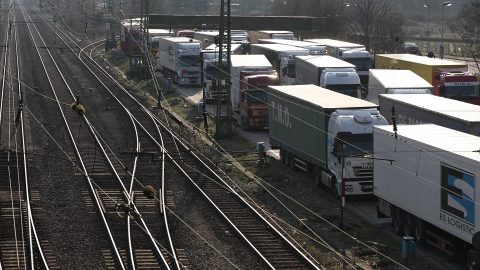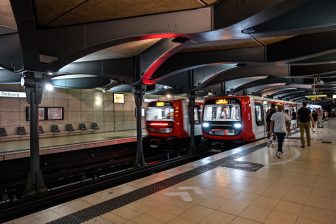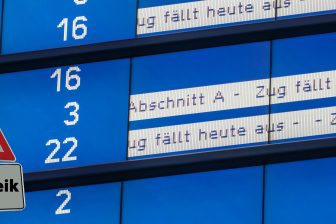
CER demands equal rules for railways and roads
The EU’s rail and road haulage sectors should function in equal conditions. To this end, the Community of European Railway and Infrastructure Companies (CER) has called the Member States to introduce tolling and external-cost charging on all major roads. This move will assist to decarbonise transport in the EU by shifting to low-emission modes including rail.
CER issued a policy statement due to a preliminary decision taken by the Council last week on the Eurovignette Directive revision that would allow retaining the scheme of time-based charging. “This would hinder Europe’s efforts to clean up and decarbonise transport with a shift to low-carbon modes like rail,” the Community argues. According to it, such a decision contradicts with the green policy of the EU and the Member States as well as to the user-pays principle, which requires charging at least marginal cost, implying distance-based charging.
In its statement, CER notes that, according to the EU law basement, the railway operators pay distance-based charges for using infrastructure. This user-pays principle acts everywhere in the EU. As for the road haulage sector, this approach works only partially – on just 25 per cent of major roads. “Distance-based charging on all major roads should naturally be implemented to comply with the very same principle,” CER specifies.
Eurovignette Directive
The Community also reminds that in May 2017 the European Commission proposed a revised Eurovignette Directive (1999/62/EC). Inter alia, the document suggests to phase out time-based road charging (vignettes) for heavy-duty vehicles (lorries and buses) by 2023. This move will create a basis to introduce distance-based road charging in the EU. In October 2018 the European Parliament supported the initiative in its first-reading position and proposed to abolish a vignette by 2022.
At the same time, CER is deeply concerned and disappointed with the Council’s latest Eurovignette text. The document is scheduled to be agreed by the EU Member States as their General Approach on 2 December. It provides three key points:
- to entirely remove any deadlines for phasing out time-based road charging, even for heavy-duty vehicles,
- to restrict the obligation for external-cost charging of trucks and coaches only to “a part of the network” where the environmental damage generated is “the most significant”,
- to exclude heavy-duty vehicles of less than 12 tonnes from tolling for eight more years.
Fair competition
The Community on behalf of the European rail sector considers such an approach as contradictory to the EU decarbonising policy. “There is no sustainable transport without fair competitive conditions for green modes like rail. CER is, therefore, urging the Member States to revisit their stance on Eurovignette. At their meeting on 2 December, Transport Ministers should pave the way for tolling and external-cost charging on all major roads in Europe,” CER Executive Director Libor Lochman said.
For that reason, CER calls Transport Ministers for help in implementing user-pays and polluter-pays in transport by aligning themselves with the European Parliament’s position, or at least the Commission’s proposal for a revised Eurovignette Directive, in particular for articles 7(6), 7(8) and 7c(5).
Read also:



